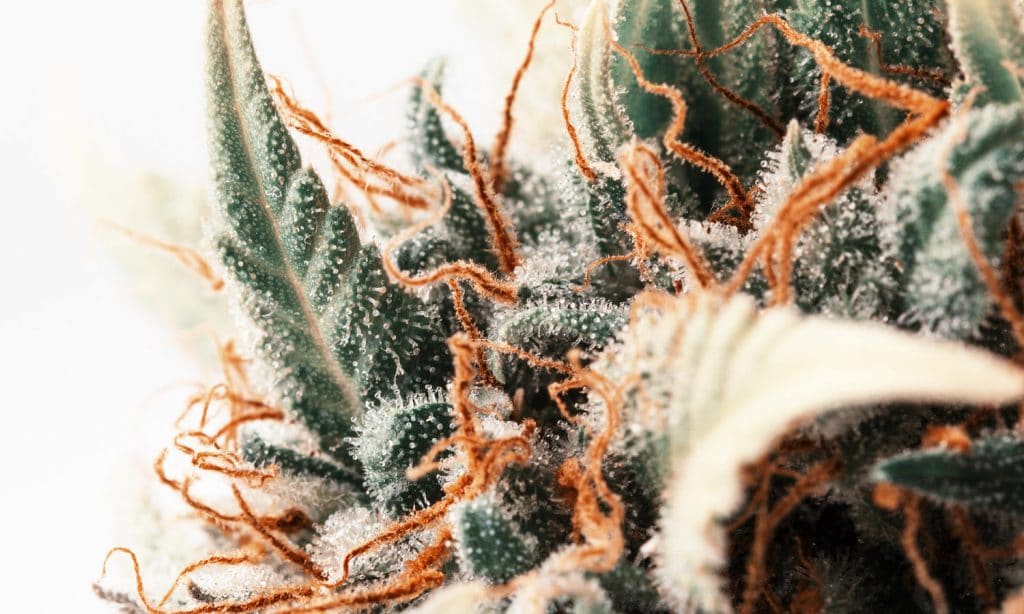By The Fresh Toast's Nicole Skrobin, provided exclusively to Benzinga Cannabis.
THCA is the acid form of THC that’s found in the raw cannabis plant. What does all this mean though, and how can THCA have a positive impact on one’s life?
The cannabis plant contains over 400 chemical entities and more than 60 of them are cannabinoid compounds. One of these cannabinoid compounds is THCA (tetrahydrocannabinolic acid), which contains its own variety of medicinal properties and therapeutic effects.
THCA is a unique compound because it’s not only non-psychoactive and medically beneficial, but it’s the acid form of THC that’s found in the raw cannabis plant. What does all this mean though, and how can THCA have a positive impact on one’s life?
About THCA & Its Link To THC
As mentioned above, THCA is the acid form of THC that’s found in the raw cannabis plant. In general, cannabis produces all cannabinoids in acid form. One of the most abundant of all cannabinoid acids is THCA, which is a precursor to THC. On its own, cannabinoid acids don’t make users high. Instead, these acids deliver a variety of health benefits minus changes in consciousness.
When one consumes THC, a decarboxylation process normally takes place first. Decarboxylation is the term that’s used to describe the heating of a compound via smoking or vaping. To convert THCA into THC, raw cannabis first needs to be dried, aged, and heated via smoking or vaping. Overall, THC is a breakdown of THCA, and it doesn’t deliver psychoactive effects until it’s heated through decarboxylation.

Photo by TorriPhoto/Getty Images
Medicinal & Therapeutic Benefits Of THCA
Although research on THCA is in its infancy stage, a great deal of research findings has emerged regarding several of its medicinal benefits. After learning about THCA and its link to THC, let’s discuss the medicinal and therapeutic benefits of this compound. Different studies have been performed on THCA in recent years, which discovered the following potential benefits of the compound:
- Anti-inflammatory properties for treating arthritis, lupus, menstrual cramps, muscle spasms, pain, and various auto-immune condition.
- Neuroprotective properties for treating neurodegenerative diseases like Parkinson’s Disease and dementia
- Anti-emetic properties for treating nausea, stomach problems, and appetite loss.
- Anti-proliferative properties to potentially help slow down the rate of various diseases and forms of cancer
In addition, there’s also much promise in consuming THCA to treat epilepsy and seizures. In one particular study, two milligrams of THCA administered daily resulted in the subject experiencing a 90 percent seizure reduction. Similarly, when specific terpenes are combined with THCA in a cannabis strain, this combination can significantly contribute to the anti-seizure and anti-epileptic effect THCA has on patients.
On the same note, recently, a publication was released by Dr. Dustin Sulak and Dr. Bonni Goldstein regarding the usage of THCA in the treatment of epilepsy. Dr. Sulak reported that a higher THCA dose (two milligrams) combined with THC can be effective in treating seizures, pain, and arthritis. Then, Dr. Goldstein reported that daily THCA consumption of 10-20 milligrams proved to be effective in pain reduction in some patients with arthritis and irritable bowel syndrome (IBS).
Additional Medicinal Benefits Of THCA
Furthermore, medical cannabis patients who have been diagnosed with seizures or epilepsy may benefit more from consuming multiple cannabinoids and whole plant compounds rather than just CBD on its own. However, each individual case is different. In addition to the medical benefits listed above, there are more uses for THCA. For example, it has been found that THCA has a significant impact on the endocannabinoid system. Thus, reports indicate THCA’s ability to deliver anti-spasmodic, anticonvulsant, and anti-insomnia effects to users while also being immune supportive.
Moreover, regarding THCA’s anti-proliferative properties, one study conducted in 2013 found that in animal models and cell structures, THCA inhibited the proliferation of prostate cancer cells. Additionally, a study that was conducted one-year prior (2012) discovered that THCA neutralized damage caused by oxidative neurotoxins. Although more research should be conducted to confirm this finding, this discovery represents the potential of consuming THCA to help treat neurodegenerative diseases caused by oxidative stress.
Lastly, at the University of Guelph in Ontario, Canada, Erin Rock and other scientists found that extremely low doses of THCA were able to prevent nausea in rat subjects. It was also discovered that THCA successfully synergizes with CBDA, thus, acting as a strong antiemetic compound.
Overall, the medicinal and therapeutic effects of THCA should be researched and studied more. However, the effects and properties that have already been discovered point to the significant potential of this compound, which shouldn’t be dismissed. If you’d like to consume THCA, it’s suggested to look for high-THC strains that haven’t been decarboxylated yet. You could also juice or blend raw cannabis parts such as leftover fan leaves, buds, and/or stems to reap as many benefits of THCA as possible!
Featured image by rawpixel.com
© 2025 Benzinga.com. Benzinga does not provide investment advice. All rights reserved.
Trade confidently with insights and alerts from analyst ratings, free reports and breaking news that affects the stocks you care about.